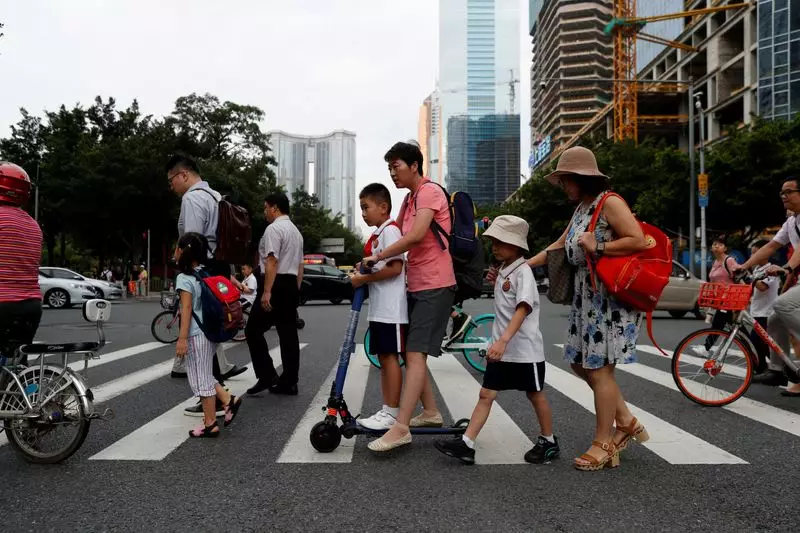In recent years, the private tutoring sector in China has undergone significant turmoil due to the government’s “Double Reduction” policy, implemented in 2021. This initiative aimed to relieve the immense educational and financial pressure faced by families by banning for-profit tutoring in core school subjects. The immediate effects were devastating; the value of the tutoring market plummeted, resulting in the loss of hundreds of thousands of jobs. To many, it seemed the government intended to dismantle the tutoring industry altogether. However, recent developments indicate that policymakers are subtly re-evaluating their approach, and there has been a marked shift towards a more supportive environment for tutoring operators.
Despite the absence of an official policy reversal, there seems to be a tacit acknowledgment from Chinese authorities regarding the necessity of a vibrant tutoring market. Industry experts and parents have reported a gradual easing of regulations and a more open operational environment for tutoring centers. This evolving landscape is crucial, particularly as the Chinese government faces the pressing challenges of job creation and economic revitalization.
Interviews with parents reveal a striking contrast between the initial fear that gripped tutoring organizations when the crackdown was enacted and the current sense of cautious optimism. Michelle Lee, a parent from southern China, described how tutoring centers have become more visible and accommodating lately, abandoning previous practices of secrecy. This suggests a burgeoning acceptance from the government regarding the role of private tutoring in enabling children to navigate an increasingly competitive educational system.
Government Signals: Toward a Supportive Framework
Recent governmental initiatives indicate a renewed focus on the education sector, which has strategic significance in stabilizing the economy. The State Council’s announcement in August, which emphasized education services in its consumption-boosting plan, has reinvigorated the spirits of education firms. Such policies signify a shift towards creating an environment where tutoring businesses can flourish, albeit within a controlled framework.
The educational authorities have begun to clarify which kinds of extracurricular tutoring will be permitted. The introduction of a “white list” of approved tutoring organizations is a notable example. This list allows specific companies to operate legally while adhering to guidelines that limit their offerings to non-core subjects. Such measures represent a pragmatic compromise, allowing the state to retain regulatory oversight while enabling the tutoring industry to rebound.
Despite the official crackdown, the private tutoring sector has demonstrated remarkable resilience. A plethora of organizations adapted to survive the new landscape, often by rebranding their curriculum or altering the subjects they taught. For example, instead of providing traditional English courses, some operators have cleverly pivoted to focus on teaching “logical thinking” or other creative subjects that skirt around the restrictions.
Educational organizations that survived the crackdown have begun hiring again, indicating an industry resurgence. New Oriental and TAL, two of the largest tutoring companies, have reportedly increased their workforce in response to burgeoning demand. Additionally, the rise in active licenses for extracurricular tutoring centers reflects rekindled confidence in private education.
Challenges and Opportunities Ahead
While the potential for recovery in the tutoring sector is apparent, challenges remain. Tutoring companies are walking a fine line between achieving legitimacy and falling afoul of stringent regulations. Companies like New Oriental have expressed concerns in their annual reports regarding the unpredictability of regulatory interpretations. Continuous vigilance and cooperation with government authorities will be crucial for these organizations to thrive.
Moreover, parents are faced with a dilemma in the current environment: high costs associated with private tutoring or spending countless hours assisting their children with coursework. As the educational landscape continues to unfold, parents like Yang Zengdong are anxious about the financial and time burdens of ensuring their children’s academic success.
As China navigates its complex educational landscape, the private tutoring sector stands at a crossroads. The subtle signs of regulatory easing present both opportunities and challenges for industry operators and concerned parents alike. With the government’s new focus on economic stimulation and the stabilization of youth employment, the potential for the sector to thrive once again is promising. However, the path ahead will require careful navigation of regulatory frameworks, parental sacrifices, and innovative approaches to education. The story of private tutoring in China is far from over, and its evolution will be a critical piece of the country’s ongoing educational discourse.

